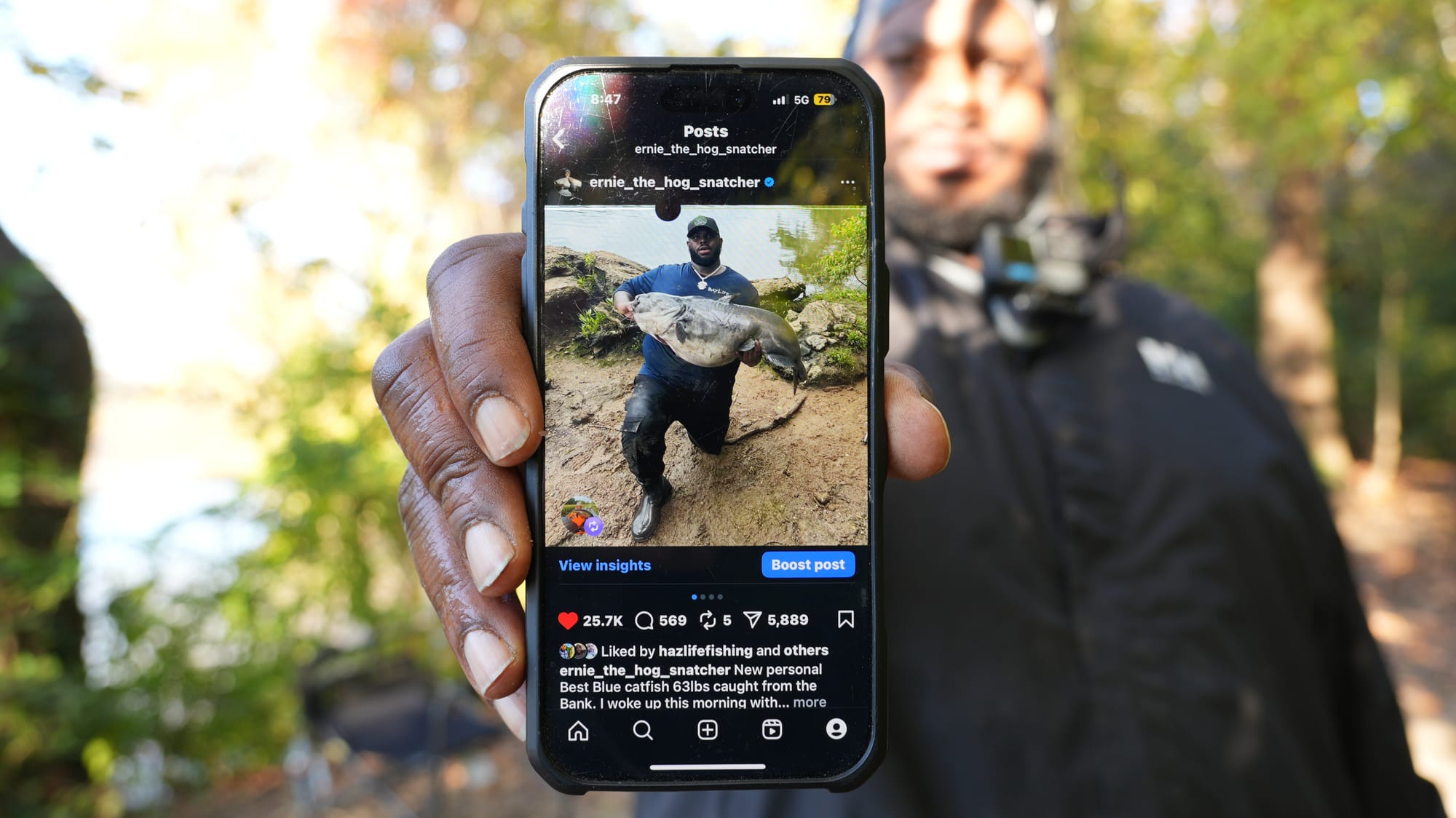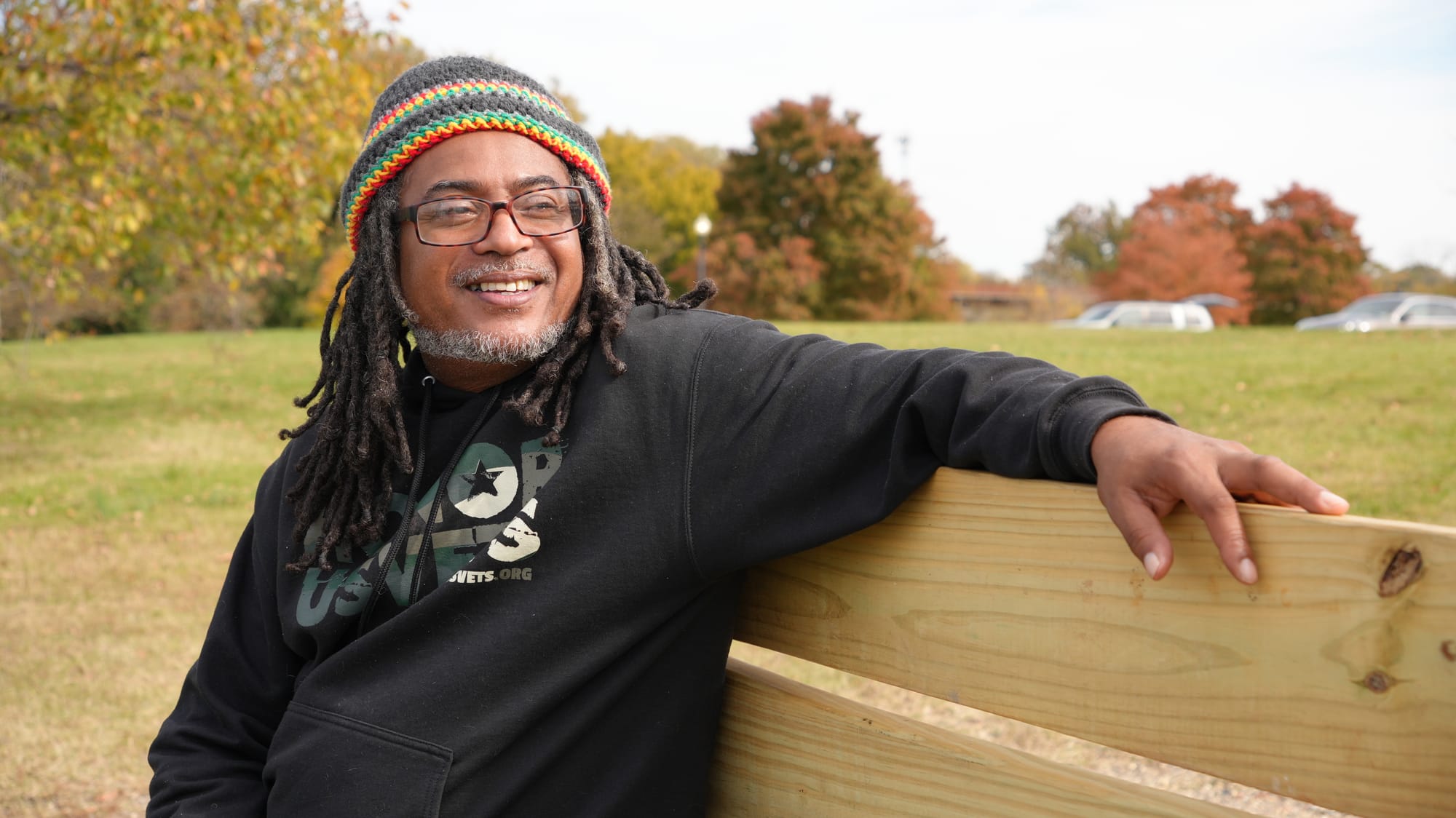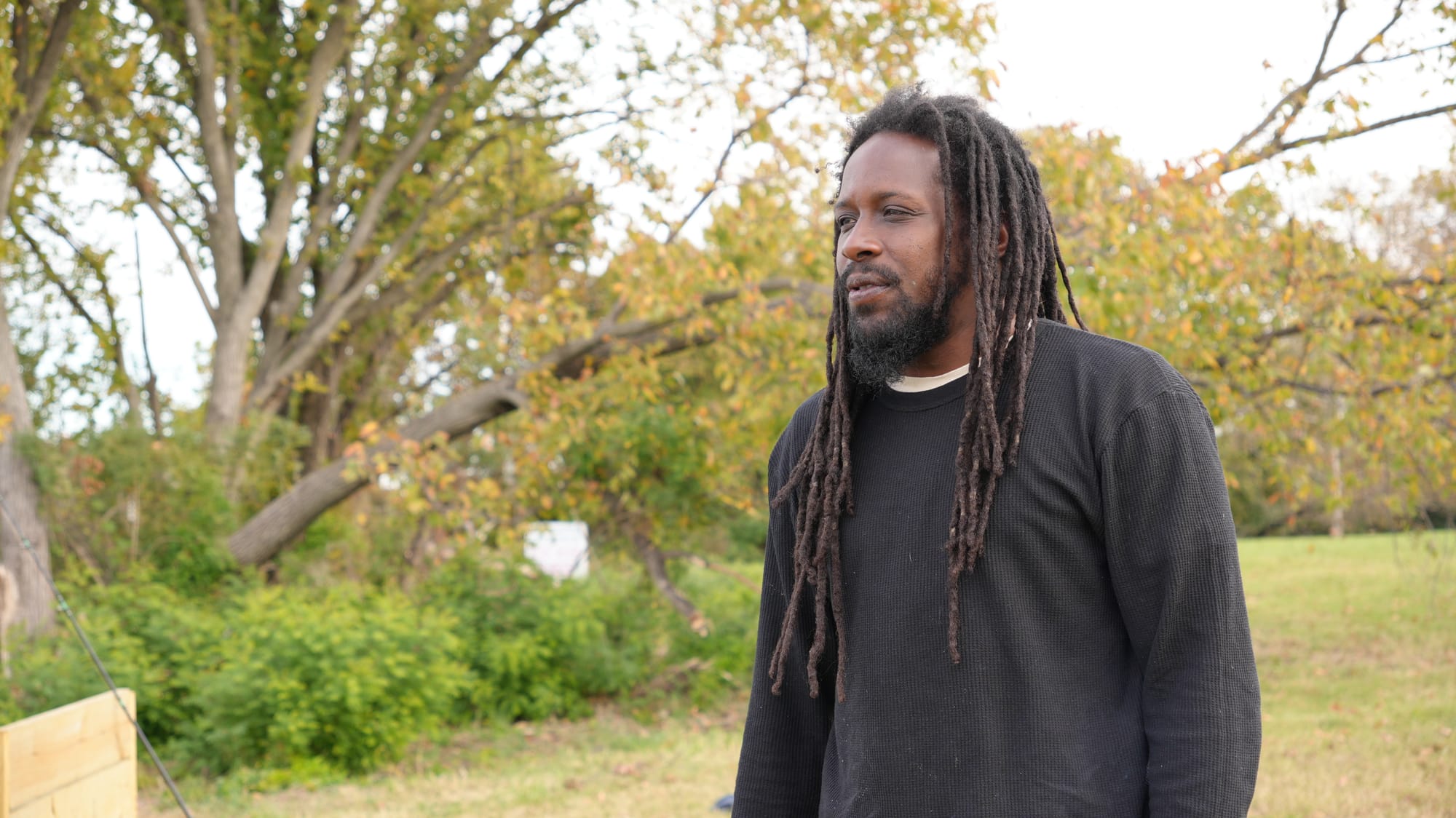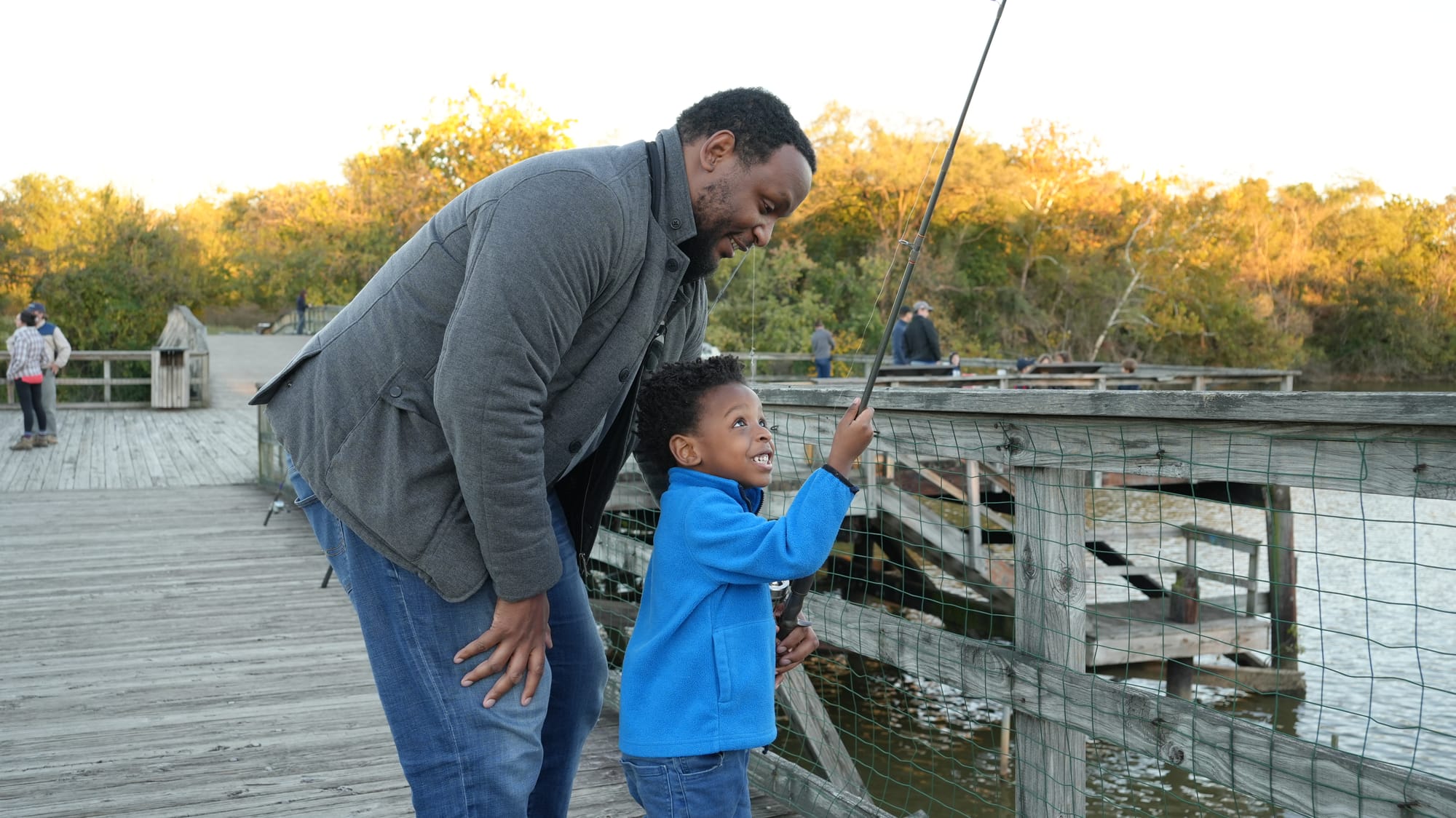Poopy Potomac no more? D.C. lifts advisory for river after sewage spill
But environmentalists say more has to be done to convince people the waters are safe
We hit the banks of the Potomac and Anacostia with "Ernie the Hog Snatcher" and a host of other locals, who say fishing brings them peace, community, and fun.

At 6:30 a.m., most people in the District are still asleep or just barely waking up. But on one clear, crisp October morning, pulling a wagon full of fishing equipment alongside the Potomac River, Ernest Robinson was already hard at work.
Perhaps you know Robinson by another name: Ernie the Hog Snatcher. The 35-year-old has amassed more than 1.7 million followers on social media, where he posts videos of him catching massive, trophy-sized catfish — a.k.a, the “hogs.”
Robinson hails from Prince George County, but he does the vast majority of his fishing in D.C. along the Potomac. For some viewers, it comes as a surprise that these enormous creatures live among us. But they’re Robinson’s favorite fish to catch. “It’s an addiction,” he told The 51st.
Catching fish may have launched Robinson into online stardom, but he’s just one of the hundreds of people who fish along the District’s rivers and streams. Amidst the busyness of city life, a community of anglers turn to local waterways for peace, for community, and of course, for the pure fun of fishing.
Two hours passed before one of Robinson’s four fishing rods started to show signs of a bite. As he reeled in the line, at the end was the usual suspect: a blue catfish. Unlike the hogs on his Instagram, this one was small — what anglers like himself call a “dink.”
“Not a big fish,” Robinson said with a grin. “But it’s a fish.”
D.C., like many urban areas, has long struggled with polluted waterways. Decades of industrial waste-dumping and an antiquated sewage management system contaminated the Potomac and Anacostia rivers with bacteria, sediment, and toxic chemicals, said Jonathan Champion, the associate director of D.C.’s Department of Energy and Environment water quality division. The long record of poor water quality has resulted in a ban on swimming in D.C.’s rivers for over 50 years.
Understandably, this history has created a public stigma around our waterways, even as investments in water quality management over the last two decades have made at least the Potomac River moderately cleaner. In recent years, though, a lively community of Washingtonians have been reclaiming D.C.’s waterways.
Recreation on the Anacostia has been “skyrocketing,” according to Trey Sherard, who leads community fishing events with Anacostia Riverkeeper. “People crave nature, and [fishing is] one of the best excuses we've found to give ourselves nature time.”
Each year, thousands of people come to the Potomac and Anacostia rivers to cast their lines. In 2023, DOEE sold more than 6,700 of the licenses required to fish within the boundaries of the District, said Dillon Waters, a fishing license coordinator with the agency.
Anglers like Robinson see the potential of D.C.’s waterways. “Can’t nobody talk bad about this river in front of my face,“ he said. “We got one of the best fisheries on the East Coast.”
Robinson speaks from a lifelong appreciation of the Potomac: His grandmother taught him how to fish in the river at a young age. Over the years, he continued to go fishing with his family — though it wasn’t necessarily a significant part of his life. That changed when Robinson, a financial analyst for the U.S. Navy, found himself indoors a lot more during the pandemic.
“I was looking for something to do,” he said. “I'm like, ‘Hey, why wouldn’t I just go back to what I used to do?’”
Robinson went to YouTube to look for tips on how to catch big catfish, and he came across a community of creators who posted fishing livestreams. Seeing other anglers record their experiences inspired Robinson to do the same.
In those first couple of months, he was broadcasting to just a few dozen people. But when Robinson signed up for TikTok and started going live there, bigger crowds started tuning in. “They were very intrigued on the fishing aspect, on how we were catching fish in the Potomac River in Washington, D.C.,” Robinson recalled. “Because a lot of people like, “What, we got big fish in the river like that?’”
Robinson later started posting on Instagram and Facebook, too. Around a year into posting, he started to see his followers skyrocket and his reputation grow. Ask other D.C. fishers — they’ll likely know all about the Hog Snatcher.

Viewers often leave comments on Robinson’s videos asking if eats the fish he catches, and if it’s safe to do so. Others post comments about how they would never eat fish that comes out of the Potomac or Anacostia.
Like most fishers in D.C., Robinson releases a majority of what he catches. But occasionally, he’ll take one for his “catch and cook” videos.
DOEE strongly recommends limited consumption of river fish, and it issues a yearly list advising which species are safest to eat and serving size recommendations. (Blue catfish outrank the others in safety, while fish like striped bass are on the "do not eat" list.) While the District’s infrastructure investments have helped improve water quality, "forever chemicals" like PCBs and PFAS are still contaminating D.C.'s waterways.
A major contributor to low water quality: D.C.'s combined sewer system. These sewers, which serve a third of the District, receive wastewater from buildings and stormwater runoff from rain. When there’s an excess of rain, the system overflows, sending waste into the city’s rivers and streams.
That’s where DC Water’s Clean Rivers Project comes in. The large-scale infrastructure project includes building massive tunnels that divert waste overflow into separate facilities. The first phase of the Anacostia River Tunnel project, finished in 2018, led to a 98% reduction in combined sewer overflow in an average year. Construction on the Potomac River Tunnel began last summer, and DC Water aims to complete the project in 2030.
While Robinson knew how to fish long before he became a content creator, other D.C. residents have taken up fishing later in life. That was the case for Nigel Brake, the Park Steward Program Manager for Ward 8 Woods. Brake, who has lived in D.C. for 37 years, spent months learning how to fish in 2017 with a mentor before going out to the Anacostia River on his own, and later, with his friends.
“It just became a lifestyle,” said Brake, 49. “We all go and we sit, we talk, bring the kids.”
Brake’s friend, 37-year-old Byron Coleman Sr., says fishing plays a similar role for him. “It’s meant for people who want peace in their life, living here in this hectic city,” said Coleman, who spends his days working as a special education aide at a local high school.
The two shared stories of the peaceful moments that fishing has given them: One quiet night during a fishing trip with friends, Coleman says his son fell asleep on the swaying pier. Brake, Coleman, and two other friends put their jackets on the young boy and continued fishing together for hours. “That was one of the most beautiful nights that I can remember,” said Coleman.


Local fisherman Nigel Brake sits on a bench alongside the Anacostia River. Byron Coleman Sr., Brake's friend and fellow fisherman, looks out toward the water. (Sam Delgado)
Fishing along the Anacostia River one recent morning, the two also recalled a time when Brake, Coleman, and two other friends sat underneath a willow tree near the river — just talking and listening to the birds. Brake joked that others must have thought they looked crazy. “Four dudes sitting on a damn blanket!”
Fishing has also been an outlet during tougher times. When Coleman’s wife passed away, his angler friends kept him company as he grieved. “We were fishing the night of my wife's funeral,” Coleman said. “Even though it wasn't easy, it was OK, because I was surrounded by love.”
Fishing has strengthened Brake and Coleman’s bond, and also connected the two friends to a larger D.C. community that they describe as welcoming and peaceful. For Black men in particular, fishing can be the calm before and after what Coleman called the “everyday storm.” By the water, they can experience collective relaxation.
“There's not a lot of things where Black men in D.C. come and mesh together, especially if you don't already know each other,” said Coleman. “But fishing is one of those things.”
During their morning of fishing together, one angler shared bait with him. And by the time the pair finished a conversation with another visiting fisherman, he’d invited them to go out together in his boat one day.
“D.C. fishing is a culture,” said Coleman. “I wish we could create this same type of culture, same type of vibe, in everything that we do.”
Have you been itching to cast a line? Here’s how you can join D.C.’s fishing community.

Get a fishing license: Fishing in the District requires a license. It costs $10 for residents and $13 for non-residents. These fees help fund local conservation and fisheries research, said Waters, of DOEE.
Find a class, community event, or waterway near you: Groups like Anacostia Riverkeeper put on fishing events throughout the summer and fall, and they provide all the necessary equipment. DOEE’s Aquatic Resources Education Center also offers free fishing clinics. Of course, you can always just show up with your license and a rod and learn on the fly. The DOEE has a list of great local fishing spots. Sherard also recommends checking out social media for fishing techniques and tips.
Buy equipment and bait: If you want to have your own gear, Brake says you don’t need to spend a ton of money. He buys his rods from Walmart and pawn shops, and recommends brands Ugly Stik and Shakespeare for beginners.
D.C. currently has no bait restrictions. While you can always use classic bait like worms, this is a part of fishing where creativity is welcomed. On their recent trip, Brake and Coleman used Sour Patch Kids and beef jerky to lure fish. To catch his hogs, Robinson uses other fish, eels, and raw chicken.
Remember, patience is key: “Fishing teaches you to be quiet, and patience,” Brake said. “Because you can't rush none of this.”
It may take hours before your rod gets a nibble. And not every fishing expedition will lead to a catch — sometimes you’ll get “skunked,” as anglers like Robinson and Sherard say. Catching a fish can be exhilarating, but the calm that comes with waiting can be just as vitalizing.
With your help, we pursue stories that hold leaders to account, demystify opaque city and civic processes, and celebrate the idiosyncrasies that make us proud to call D.C. home. Put simply, our mission is to make it easier — and more fun — to live in the District. Our members help keep local news free and independent for all: